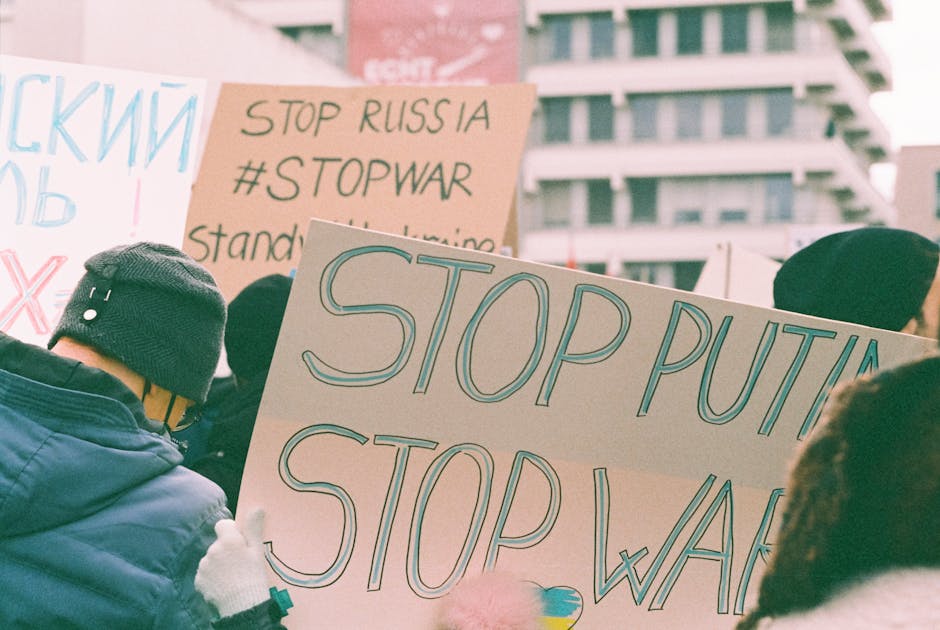**
New Delhi – While whispers of a new US-drafted peace plan to end the war in Ukraine circulate in Washington, Kyiv’s response is one of profound skepticism. For a nation under constant aerial bombardment, Ukraine doubts Russia’s desire for peace, viewing diplomatic overtures as a strategic smokescreen for continued aggression.
A Glimmer of Diplomacy: The Reported US Plan
Reports suggest senior officials in the Biden administration are formulating a framework intended to serve as a potential “off-ramp” to the conflict, now in its third year. While specific details remain confidential, the plan is believed to center on offering Ukraine significant security guarantees in exchange for a negotiated settlement with Russia. This initiative represents the latest international effort to find a diplomatic solution to a war that has destabilized global markets and reshaped European security.
Kyiv’s Skepticism: Why Ukraine Doubts Russia’s Motives
From Kyiv’s perspective, any peace plan is viewed through a lens clouded by the brutal reality of war. The primary reason Ukraine doubts Russia’s genuine desire for peace is the stark contrast between Moscow’s diplomatic language and its actions on the battlefield.
Ukrainian officials argue that Russia’s relentless military campaign betrays any purported interest in good-faith negotiations. This deep-seated mistrust is heavily influenced by past failures, such as the Minsk Agreements, which many in Ukraine believe Russia exploited to rearm before launching its full-scale invasion in 2022.
“Peace is our ultimate goal, but a genuine peace, not a temporary ceasefire that allows Russia to rearm and attack again,” a source close to the Ukrainian President’s office stated.
Actions on the Ground Undermine Peace Talks
While talk of the US-drafted plan gains traction, Russian forces continue their assault. In recent days, waves of drone and missile attacks have targeted critical civilian infrastructure across Ukraine, a strategy aimed at crippling the country as winter sets in.
Simultaneously, ferocious battles rage on the eastern front, particularly around the city of Avdiivka, where Moscow is reportedly suffering immense casualties for marginal gains. To Ukrainian leaders, this scorched-earth offensive is not the conduct of a nation preparing to make concessions at the negotiating table.
The Kremlin’s Unyielding Stance
The Kremlin publicly maintains it is “open to talks,” but its conditions remain the primary obstacle. Moscow insists that Kyiv must accept the “new territorial realities”—a diplomatic euphemism for recognizing Russia’s illegal annexation of Crimea and four other Ukrainian regions. This demand is a non-starter for President Volodymyr Zelenskyy’s government and the Ukrainian people, creating a fundamental impasse that no third-party plan has yet been able to bridge.
From an Indian perspective, the continued conflict is a source of significant concern. New Delhi has consistently advocated for diplomacy and dialogue, with Prime Minister Narendra Modi’s statement that “today’s era is not of war” encapsulating India’s position. The outcome of any US-led diplomatic push is being watched closely, as prolonged instability impacts India through volatile energy prices and food security.
Ultimately, a vast chasm separates diplomatic blueprints from frontline realities. Ukraine’s message is clear: a peace treaty is meaningless if signed with a nation whose military actions signal a commitment to conquest, not compromise. Until Moscow demonstrates a tangible shift in its strategic goals, Kyiv will maintain that true security lies in its own defence, not in a document.
**




